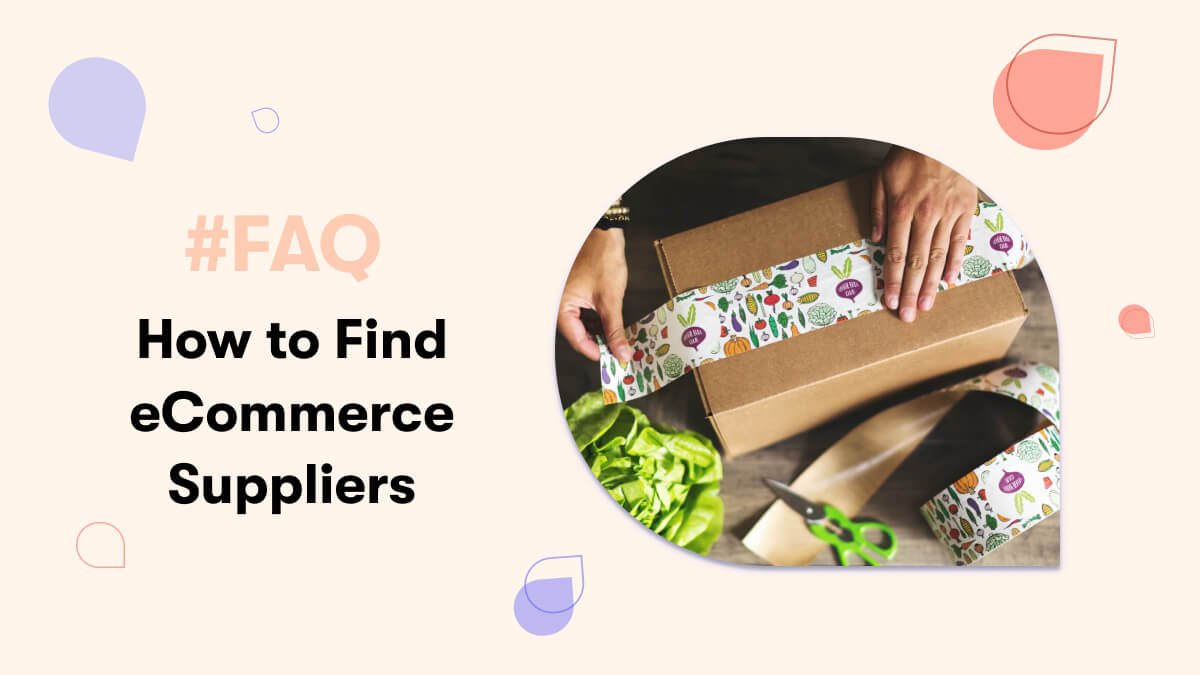How to Find Suppliers for My eCommerce Store?
Looking for the best supplier for your business? Not sure where to find them? Here's a list of the top eCommerce supplier sites.
Updated November 6, 2024

The easiest way to find suppliers is by looking on Alibaba. It’s the largest B2B marketplace for brands to order products and build long-term relationships with suppliers.
If you have a specific competitor that you want to find out where they source their products from then you can go to ImportGenius and find that information.
Other platforms include:
If you’d like to source products from local shops then you could reach out to your local chamber of commerce or google suppliers in your area. Just remember that local suppliers may be more expensive and have a much more limited inventory in most cases. However, if you are selling something perishable (like plants) then local suppliers is the way to go.
What is an eCommerce supplier?
An eCommerce supplier is a manufacturer or reseller that provides the merchandise to the merchant (or eCommerce store), so they could resell it at a profit. An eCommerce store could work with a dedicated supplier that ships the merchandise to the warehouse or store location, or a dropshipper that sends the product directly to the consumer.
How do I find a dropshipping supplier?
Drop ship suppliers are manufacturers that ship your product directly to the consumer. They may or may not use your branding and packing in the process.
What are the benefits of using a dropshipping supplier?
The main benefit of using drop ship suppliers is that it decreases shipping and inventory costs. Other benefits include higher margins, the ability to get a business up and running much faster, and the ability to sell a much wider variety of products.
The big drawback of using dropshippers is that the merchant has much less control of the customer experience and isn’t able to develop a relationship with the customer as much. Retention, loyalty, and repeat purchases all depend on the fulfillment experience, which is in the hands of the dropshipper.
Common questions to ask during supplier conversations
Here are some of the most common questions that you should ask when negotiating with a potential supplier:
- Which country are you located in?
- Is there a special tariff that affects trade from your specific country?
- Which products are available?
- How much stock do you have on hand?
- What’s the minimum order quantity?
- What is a typical turnaround time once you get a purchase order?
- What is your return or manufacturing error policy?
- What are your payment requirements?
- How long are your delivery times?
- Do you offer net 30-60-90 payment terms?
- How long does it take to develop a new product?
Always request quotes and product samples
One of the most important things you should always do is to request quotes and product samples from suppliers that you’re negotiating with. Never assume a product’s quality from a picture.
Order a sample and hold the product in your hand to verify its authenticity and quality. Some suppliers may display a high minimum order requirement but they may still accept sample orders of one or a few products.
Clearly communicate the size of your business and how much product you would order per month/quarter/year if you choose to work with them. That will motivate them to go above and beyond and create really high-quality products for your business.

![How to Find the Top Ecommerce Marketing Agency + 10 Questions to Ask [{year}]](https://entail.mayple.com/en-assets/mayple/fit-in/280x280/61c08d1ce64c590dd1c738bd_threewomensittinginanoffice_b9153095395125eb258609c660b08dfc_2000-1699776097553.jpg)
![32 Top eCommerce Hacks to Try in {year} [Free Playbook]](https://entail.mayple.com/en-assets/mayple/fit-in/280x280/6101530c00f38b98be9a0184_manflyingarocket_72024131ee6bc0e427632a249411122d_2000-1699777209962.jpg)

